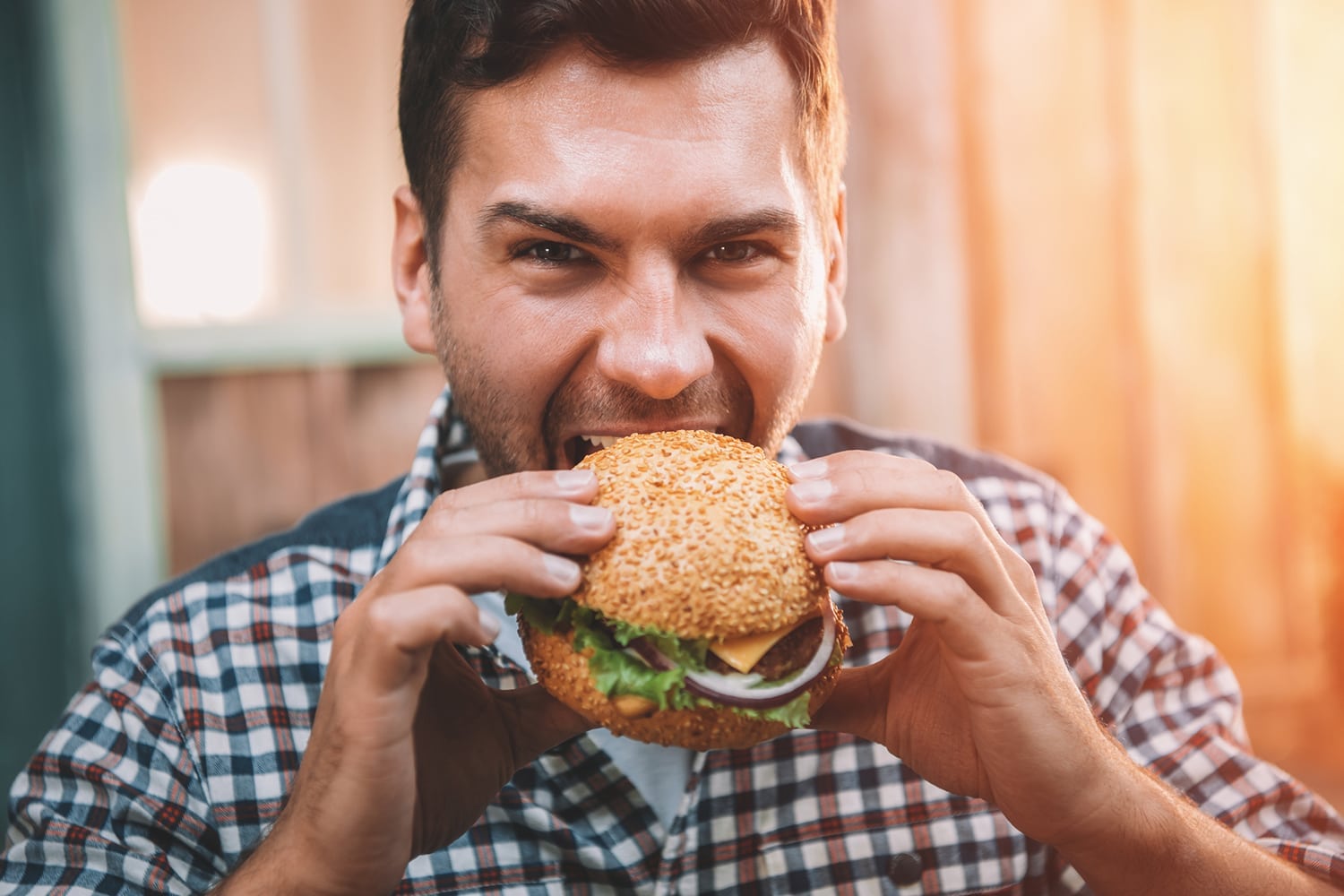<< Back
Some Nutrition Myths About Plant-Based Burgers (And A Taste Test)

September 27, 2019
By Jeanne Tennis
Are you kidding me?
That was my initial reaction when asked to write about the Impossible Burger.
Surely there is no place for “lab meat” in a whole-food, plant-based diet. Why on earth would I want to eat anything manufactured to bleed?
The Impossible Burger is the creation of Impossible Foods and is billed as the “impossibly delicious game changer of a burger.” Their mission is grand and admirable as described by Pat Brown, CEO & Founder of Impossible Foods, and detailed on their website, impossiblefoods.com:
“To drastically reduce humanity’s destructive impact on the global environment by completely replacing the use of animals as a food production technology. We intend to accomplish this mission within two decades by creating the world’s most delicious, nutritious, affordable and sustainable meat, fish and dairy foods directly from plants.”
With an ingredient list noting protein from potatoes, wheat and soy, fat from coconuts and various vitamins and minerals and a specific heme protein called soy leghemoglobin, the company site proclaims these burgers to be healthy, nutritious and safe. Billed as a healthy option, rather than a health food, the burger is cholesterol-free and does not contain added antibiotics, hormones and artificial flavors. The high protein and fat content are similar to ground beef and the flavor and appearance are intentionally meant to resemble meat.
But I am an ardent supporter of organic farms and non-GMO products and I like to know exactly what I’m eating. Besides, I was never a huge burger fan. Nonetheless, in the name of personal curiosity and professional research, I embarked on my taste-testing of the Impossible Burger at an area Plan B Burger Bar. (The Impossible Burger, not sold in stores, is available at Burger King and other restaurants.)
My Impossible Patty, served on a sesame-seed bun, appeared crumbly, well-done and, thankfully, not bleeding. While much credit is due to Plan B Burger’s roasted tomato, caramelized onions and vegan chipotle ranch toppings and hot off the grill timing, I must admit that my Impossible Burger was remarkably palatable. It was surprisingly delicious and tasted exactly like the well-done beef burgers I ate in my younger days. The burger was everything the website claimed it to be.
Would I recommend the Impossible Burger? I do advise first perusing the Impossible Foods website impossiblefoods.com to know exactly what you’re getting in to.
The Impossible Burger may have a place in your eating plan as an occasional meal while transitioning to a plant-based lifestyle, but its highly processed nature and lack of organic or non-GMO ingredients dissuade me from recommending regular consumption of it.
Switching to plant-based eating has, indeed, shown profoundly positive and well-documented effects on both our overall health and the environment. Significant improvements in physical and mental health, energy and vitality, digestion and sleep and a reduction in inflammation along with the potential to prevent, treat and reverse many of the leading causes of death in the world including heart disease, stroke, cancers, Type-2 diabetes and Alzheimer’s disease are irrefutable reasons to center your meals around plants and whole foods.
A truly beneficial plant-based diet focuses on a wide variety of whole foods; vegetables, whole grains, legumes, fruits, nuts, seeds and quality, minimally processed ingredients.
Our bodies thrive on quality foods for vibrant and optimal health. Do your research, enjoy sampling the occasional processed plant-based foods available and better yet create some of your own plant-based burgers and meals in your home kitchen.
Jeanne Tennis is a plant-based cooking consultant and personal chef. She has taught hands-on cooking classes at the Bone & Joint Institute at Hartford Hospital, including the popular Anti-inflammatory Cooking Class Series. To register for a cooking class for endurance athletes, click here.